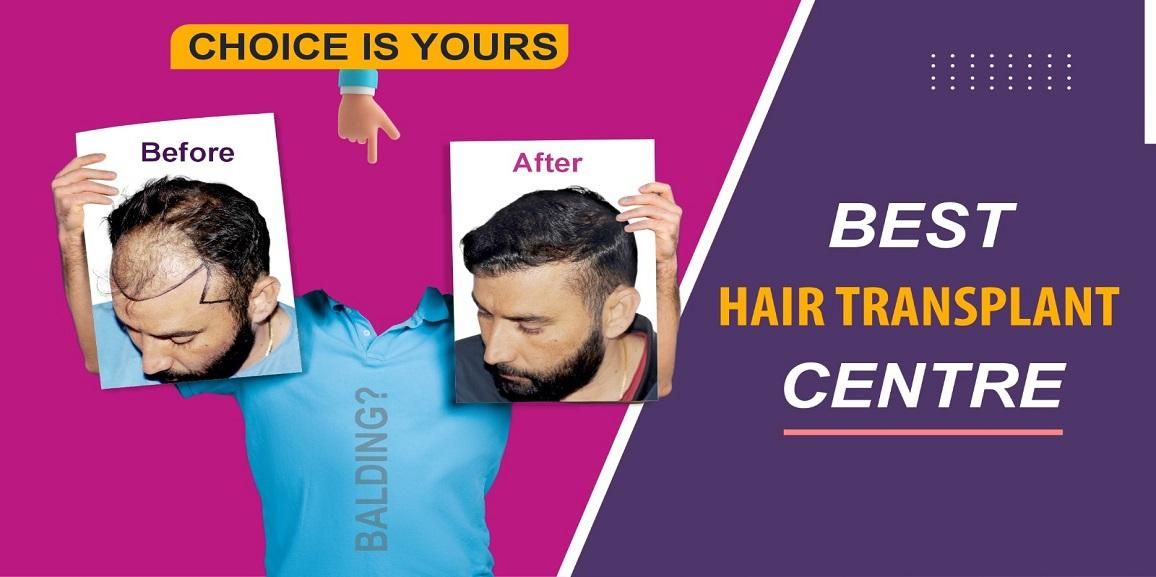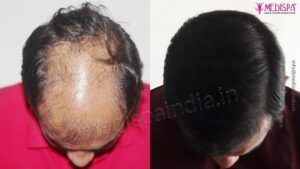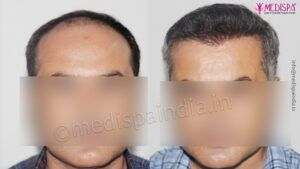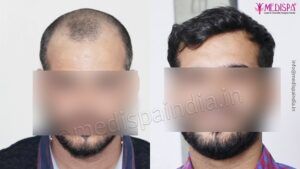
Despite hair loss not being an emergency, it can be mentally distressing, making it necessary for individuals to decide on getting a transplant themselves. The suitability of a candidate for a hair transplant depends on certain conditions and not all patients may qualify. The initial consultation plays a crucial role in the hair transplant process as it provides information about the treatment, confirms eligibility, and determines the overall cost. Therefore, finding a proficient hair transplant surgeon, verifying eligibility, and understanding the extent of hair loss are the initial steps in preparing for a hair transplant.
Hair transplant procedure
The surgical procedure is minimally invasive and involves two primary steps: the careful transplantation of harvested hair follicles following a successful extraction of the hair grafts. Essentially, the process entails harvesting hair grafts from specific areas of the body with permanent or DHT-resistant hair roots. When these roots are transplanted to a desired bald spot, the DHT-resistant hair roots yield long-lasting results due to their genetic components being located within the roots themselves.
Thanks to a select group of highly reputable doctors who offer top-tier hair transplant in Jaipur, the field has seen significant advancements. These professionals provide exceptional results through the use of cutting-edge technology and innovative treatments, coupled with their unmatched expertise.
Furthermore, the affordable hair transplant cost in Jaipur attracts people from all corners of the globe. Dr. Suneet Soni, a top hair transplant surgeon known for his exceptional surgical skills and expertise in hairline design, makes Medispa hair transplant clinic in Delhi and Jaipur the ideal choice for a remarkable hair transplant procedure.
Hair transplant procedure
The process entails a minimally invasive surgical method consisting of two main phases: the careful transfer of harvested hair follicles after a successful removal of the hair grafts. Essentially, the procedure requires the removal of hair grafts from regions of the body with permanent or DHT-resistant hair roots. When transplanted to the specific bald spot, the DHT-resistant hair roots produce long-term results by asserting dominance over the recipient area thanks to their genetic composition located in the roots.
When can we go for hair transplant?
- Hair transplant can be a suitable option for addressing pattern baldness in both men and women, irrespective of the underlying cause.
- Hair transplant can also be a viable solution for restoring eyebrows, moustache, and beard.
- It may be necessary to modify your natural hairline during the hair transplant procedure.
- Hair transplant could be a potential treatment for cases of Tractional Alopecia.
- Consider eyelash transplantation as a potential option as well.
- Hair transplantation is a viable choice for addressing areas affected by burns or unintentional scars.
How to check the hair transplant eligibility?
Here are a couple of factors to consider when determining eligibility for a hair transplant:
- Hair density: Sufficient hair density in the donor area is crucial for a successful transplant. If there is enough hair to cover the balding area, the patient may be a good candidate for the procedure.
- Overall health: The patient’s general health plays a significant role in determining eligibility for a hair transplant. Patients with certain medical conditions may not be suitable candidates for the surgery.
- Hair loss stability: Prior to undergoing a hair transplant, it is important for the hair loss to remain stable as there is a possibility of further hair loss. If your hair loss has remained steady for more than three years, you may be a suitable candidate for a hair transplant. However, it is important to note that the procedure does not guarantee prevention of future baldness in areas where there are already existing hairs. The results of a hair transplant are permanent and the transplanted hair grafts will last a lifetime.
- Presence of localized underlying pathology: Before proceeding with a hair transplant, it is crucial for the hair transplant surgeon to ensure that there are no underlying scalp skin issues that could hinder the success of the procedure. If your scalp is generally healthy, you are undoubtedly an ideal candidate for the hair transplant operation.
- Realistic expectations: To achieve satisfactory outcomes following a hair transplant, it is essential for the patient to have realistic expectations. During the pre-procedure consultation, the hair transplant surgeon thoroughly assessed the entire scalp and discussed what can be realistically expected from the procedure.
Factors deciding ideal candidate for hair transplant?
The ideal candidate for a hair transplant can be determined based on several important factors:
- Age: Patients under the age of 25 are generally not recommended for surgery due to the unstable nature of hair loss at this age. It is important to ensure that the pace of hair loss has stabilized before proceeding with treatment.
- Hair quality and quantity in the donor area: The success of the procedure relies heavily on the quality and quantity of hair in the donor area. If the hair density is insufficient, the surgeon may not be able to complete the surgery. The donor area can be located on the side or back of the head, or even on the body.
- The patient’s overall health: Prior to any surgical intervention, it is imperative for the surgeon to be informed about any existing co-morbidities that may complicate the procedure or assist in identifying the underlying cause of the patient’s hair loss. It is plausible that the hair loss may be transient and attributed to a medical condition that will resolve spontaneously over time.
- 4. Mental preparedness for the procedure: Misconceptions surrounding hair transplant procedures may mislead certain patients, leading them to hold inaccurate beliefs regarding the efficacy of the procedure or instilling fear that deters them from opting for surgery, prompting them to seek non-surgical alternatives from the surgeon. Hence, it is essential for the surgeon to offer patients appropriate guidance to ensure they approach the surgery with realistic expectations regarding their treatment choice and anticipated outcomes, ultimately enhancing patient satisfaction post-procedure. Many patients have previously experimented with home remedies or alternative treatments before consulting a surgeon, underscoring the importance of the surgeon elucidating the necessity of such procedures.
If you are contemplating whether you are a suitable candidate for a hair transplant procedure, we encourage you to contact Delhi Medispa hair transplant clinic for an in-person consultation. Similar to numerous patients who have preceded you, you are likely to find the answers you seek there.







